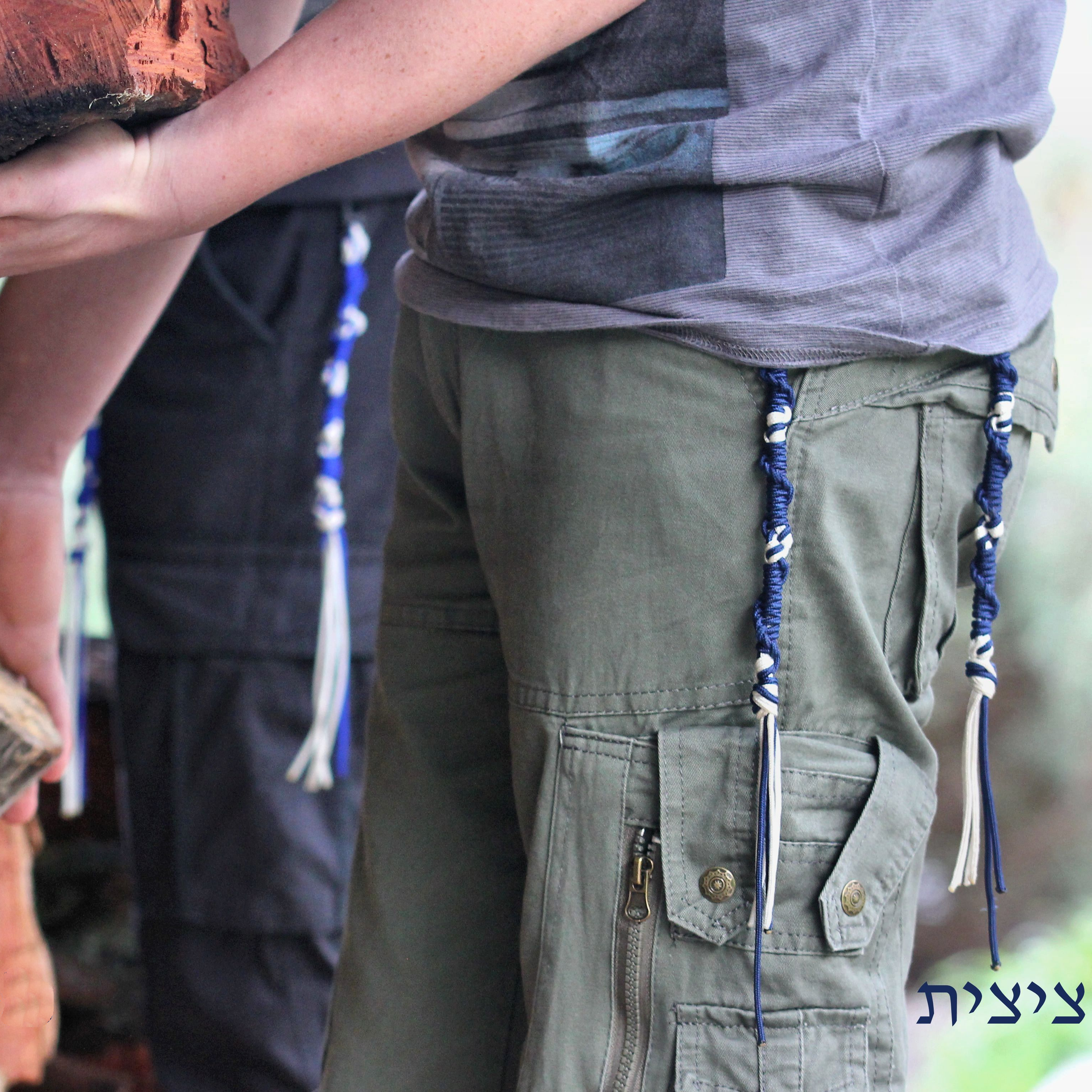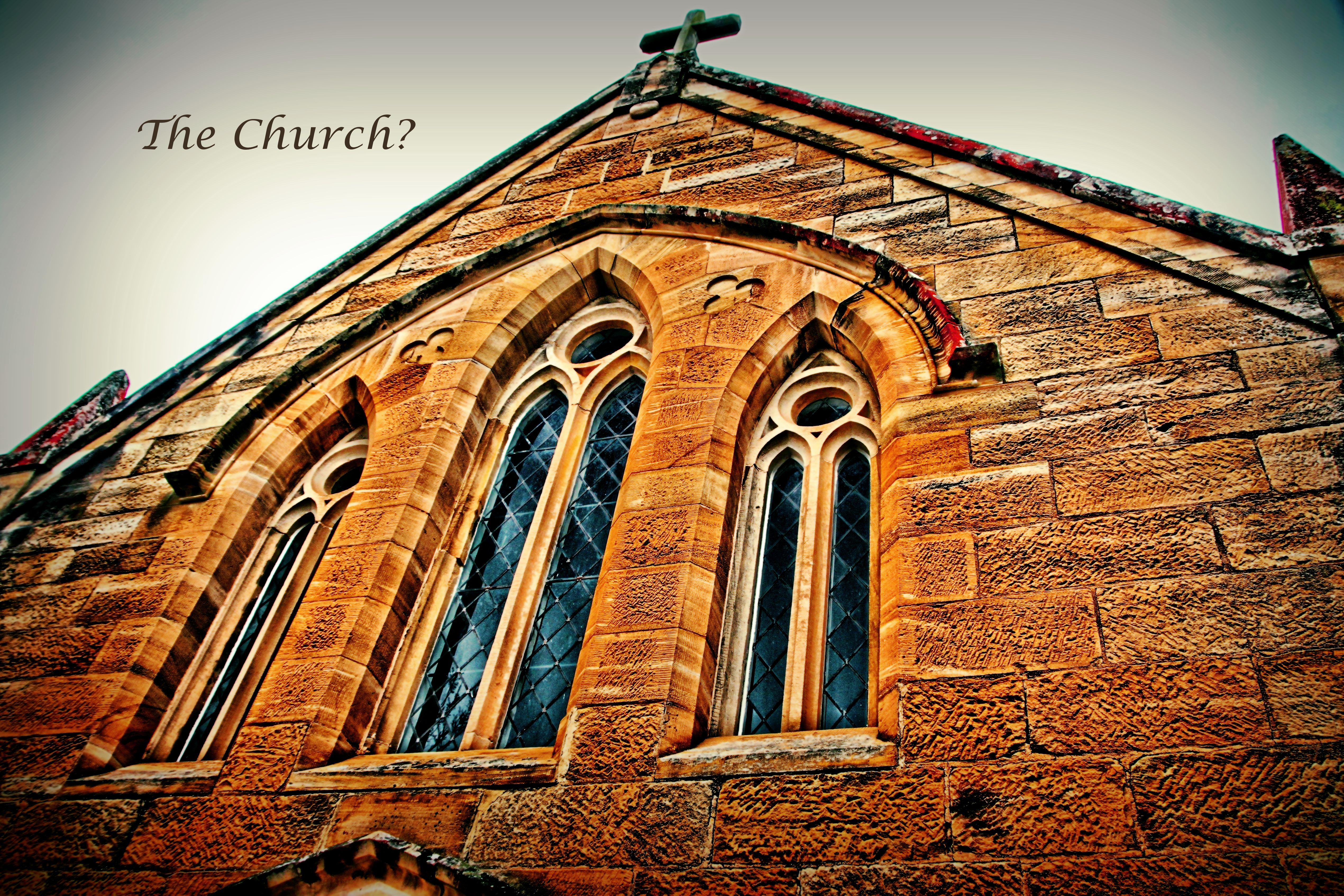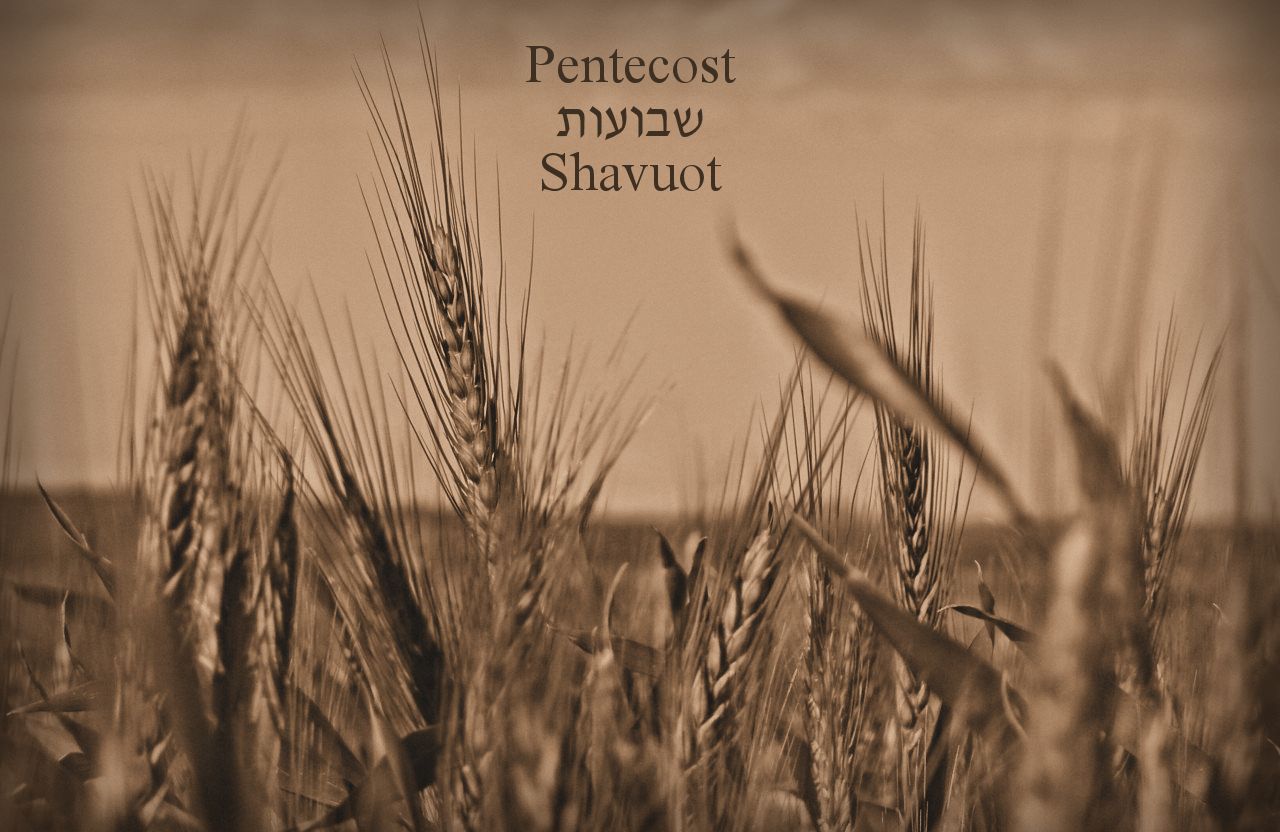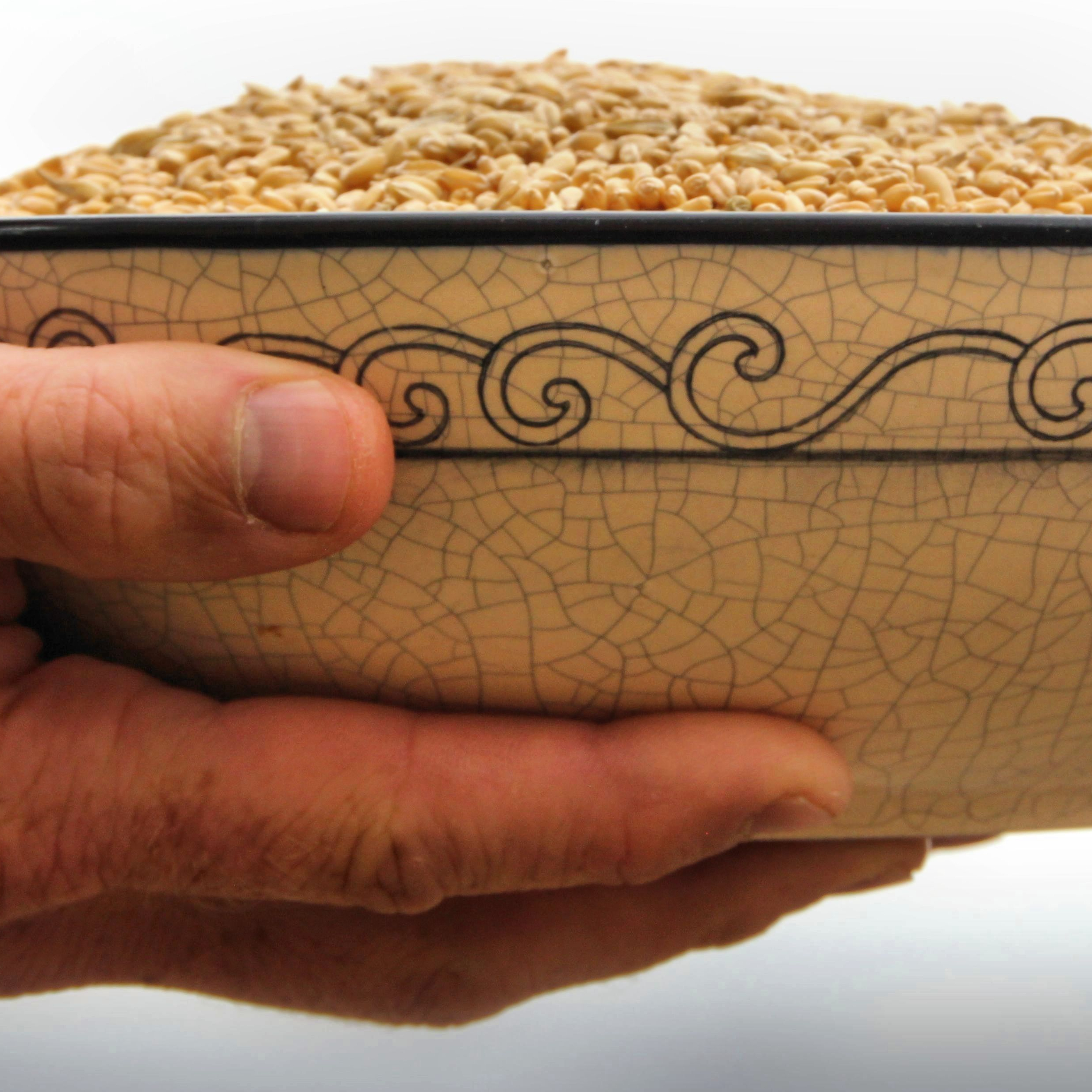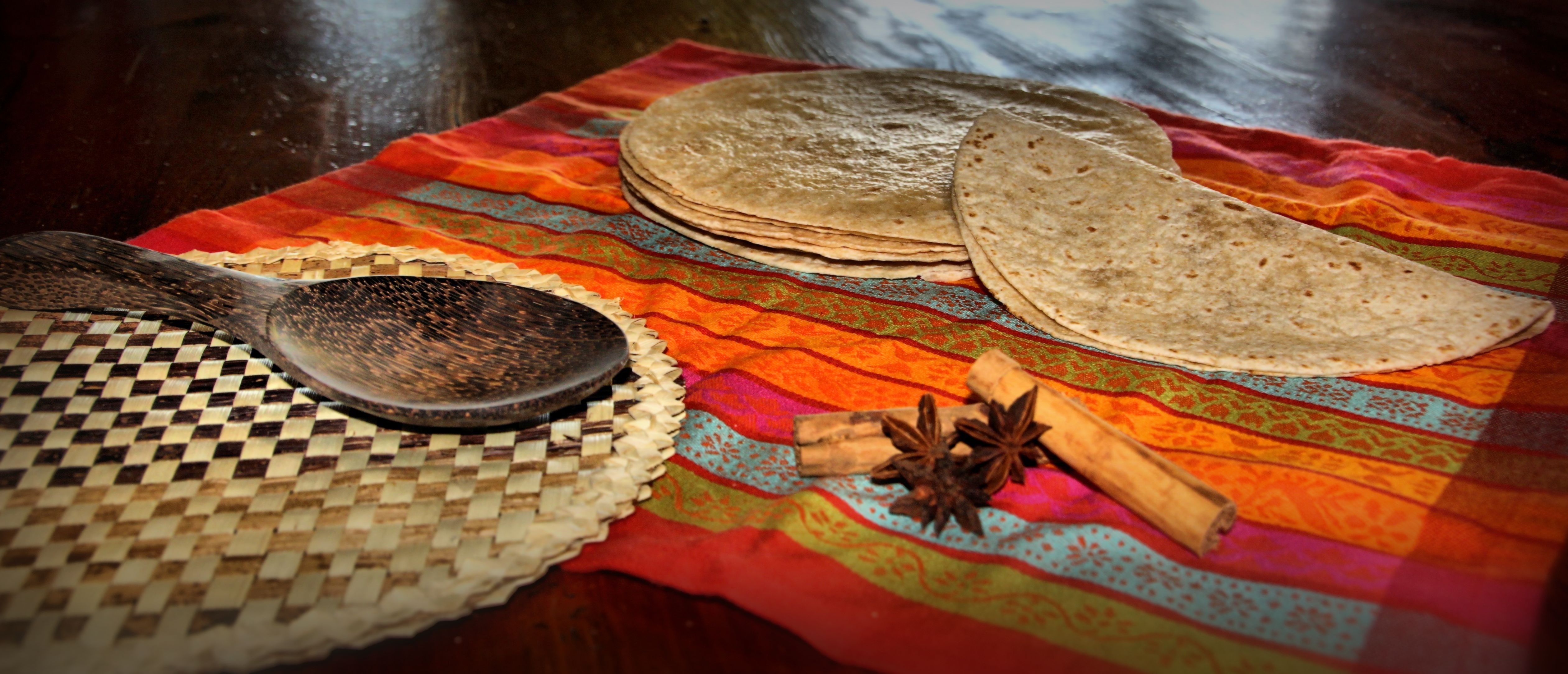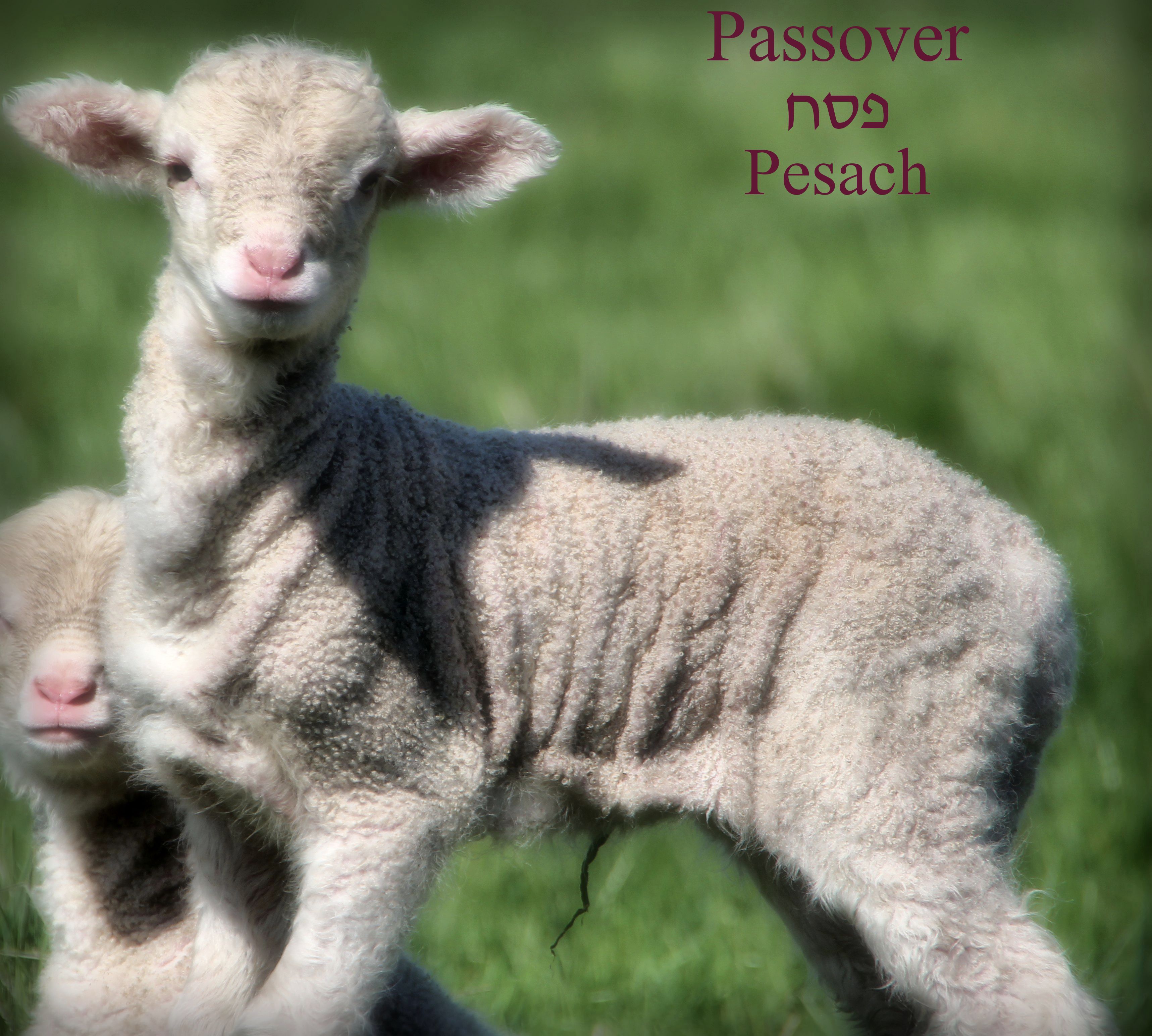This is a topic that few within christianity have heard of, fewer have any real knowledge of, and almost all would view as not being required for a believer today. It concerns the wearing of tassels/fringes/tzitzit on the corners of our clothing.
more “ציצת Tzitzit Tassels Fringes”The Church?
We have all read that Christ is the head of the church, and have seen that many NT letters were written to the church of “such-and-such”. Indeed, the word “church/churches” is found 113 times in our NT. Added to this, is the fact that the church is the bride of Christ … isn’t it!?
more “The Church?”Pentecost שבועות Shavuot
The Hebrew word, Shavuot, means “weeks”, as this next Appointed Time is seven full weeks counted from Unleavened Bread. For this reason, the day is also known as the “Feast of Weeks”. Pentecost is a Greek word meaning “fiftieth” because the day is the “morrow” after the seventh Sabbath counted, making it the fiftieth, and final, day of the Omer count.
more “Pentecost שבועות Shavuot”Counting the Omer
The counting of the Omer is a little known aspect of the Moedim amongst Christians. The Omer was the quantity of barley grain used during the ceremony on the Day of Firstfruits. That Day of Firstfruits (a Sunday) was day one of the count to Shavuot (the next of the Moedim).
more “Counting the Omer”Day of First Fruits יום הבכורים Yom HaBikkurim
This day (also known as the “Day of the Wave Sheaf Offering”) occurs during (or, occasionally, the day after) the seven days of the Feast of Unleavened Bread. It is the day after the weekly Sabbath – known today as Sunday. It was not a commanded day of rest, but simply a day when an omer (a little over two litres) of the early barley grain was waved or raised by the priest at the temple. None of the season’s barley was to be eaten until after this ceremony each year. The sacrifices that accompanied the waving of the omer were a male lamb, unleavened bread and wine. Interestingly, these were the elements the Messiah used in His “Last Supper”, with Himself as the lamb!
more “Day of First Fruits יום הבכורים Yom HaBikkurim”Feast of Unleavened Bread חג המצות Chag HaMatzot
The Feast of Unleavened Bread is a seven day long feast/festival, where no leaven is to be within the household. Passover is actually the first meal of this week-long “Moed” (Appointed Time), as it is eaten after sunset on the 14th of Abib/Nissan. Sunset ends the day in YHWH’s reckoning of time, so the 15th day of the month begins in time for the Passover meal. The first and seventh days are “High Sabbaths”, where no work is to be done.
more “Feast of Unleavened Bread חג המצות Chag HaMatzot”Passover פסח Pesach
Passover is the first of the Moedim in YHWH’s calendar, that occurs during the barley harvest. It’s also the first of the Moedim that our family began to observe (in 2007). At the time, we simply wanted an annual Biblical event that could begin a family tradition that was not based on pagan beliefs and practices. It seemed like the natural replacement, even though we knew little about the observance of it. Each year we’ve had an evening meal consisting of unleavened bread and roasted lamb, as we spend time praying and reading Scriptures that remind us of YHWH’s Passover and focusing on the Lamb of God who takes away the sins of the world.
more “Passover פסח Pesach”The Moedim מועדים – An Introduction
Moedim (pronounced: mow-ed-eem) is a Hebrew word that is usually translated as “feasts” in our Bibles. However, the word actually means “appointments” or “appointed times”. Other words associated with these Moedim also indicate that they are “rehearsals”. The Appointed Times are listed in Leviticus 23.
more “The Moedim מועדים – An Introduction”Are we Bereans?
“[The Bereans] were more noble than those in Thessalonica, in that they received the Word with all readiness of mind, and searched the Scriptures daily, whether those things were so.”
Acts 17:11
Malachi 3:6
“For I am YHWH, I change not …”
more “Malachi 3:6”